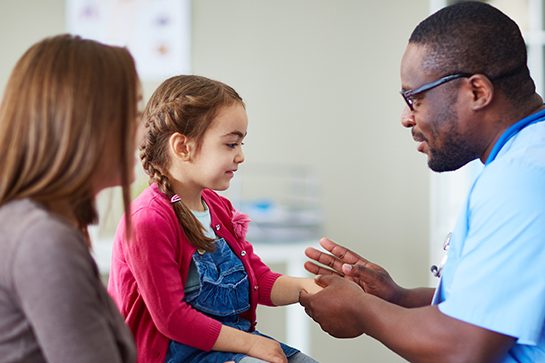In July of this year, California Medicaid launched a Whole Child Model program to emphasize the importance of care coordination and whole person care in treating disadvantaged youth. California is just one of several states increasing their focus on the Child First approach to providing care to our disadvantaged and struggling youth.
Mississippi is another state making strides towards improving healthcare for their youth population. Providing mental health care has been difficult for the state, and their lack of resources has produced a crisis. Many children with severe mental health needs have few local options for care. They must go to psychiatric institutions, often far from their homes, to receive mental health support and services. Due to this lack of care, several other negative outcomes are easily predicted, emphasizing the need for a whole person approach to care.
The situation in Mississippi shows that a lack of mental health services can lead to poor outcomes for children and youth. Youth suffering from untreated mental or emotional problems are at an increased risk of incarceration, face difficulties in school, and have higher suspension and drop-out rates, and are more likely to commit suicide. Children who don’t receive treatment for mental illness use more healthcare services as adults and are more at risk for poverty and unemployment.
As most of the affected youth in Mississippi are on Medicaid, much emphasis in recent years has been placed on increasing the efficiency of Medicaid in the state. In 2010, the Southern Poverty Law Center sued Mississippi and accused the state of failing to provide early screening and treatment services for which children are eligible under Medicaid. In the years after the lawsuit was filed, Mississippi’s overall spending for mental health services for children receiving Medicaid decreased.
Fortunately, the state’s efforts may get some help from the federal government as the omnibus budget signed by President Trump earlier this year allocated increases in funding to support mental health programs, including a $700 million increase for a grant program that provides mental health services in schools and $5 million for early childhood mental health programs.
Telemedicine is another option being implemented by Mississippi to help improve their child welfare. Telemedicine uses video-chat technology for medical examinations and consultations. Mississippi was an early adopter of telemedicine for a variety of mental health services. In 2017, the state, along with 14 others, received the highest grade from the American Telemedicine Association for the use of telemedicine for mental health. But the state still lags in something that is critical for telemedicine success: internet connectivity.
Some states, like Utah and Georgia, have placed greater emphasis specifically on telemedicine as a means of using technology to bring psychologists and counselors to rural children. Last year, Tennessee passed a bill requiring insurers to cover school telehealth services. Texas also passed legislation requiring reimbursement for some telehealth services used by schools.
Kansas is another state placing greater emphasis on whole person care, specifically their youth population as they also participate in national Child First efforts. While they have many similarities to the crisis in Mississippi, such as providing mental health services to children, they are also experiencing an escalating number of children being placed in foster care after a brief period of decline in foster care numbers from the early to mid-2000’s. While the opioid epidemic is indicated as the latest cause, an increasing number of families struggle with crippling poverty and mental health issues that also impact their ability as caregivers. With unstable homes and unreliable caregivers, the state is assuming the care of more and more kids.
Opioids are not only impacting the ability of youth to receive whole person care as they grow, but of newborns as well, and in some cases, the impacts begin before they are even born. Recognizing these risks to unborn children, Centers for Medicare and Medicaid Services (CMS) has recently published two documents describing how states can leverage Medicaid services and health IT tools to support beneficiaries battling opioid addiction, specifically focusing on Medicaid newborns who suffer from Neonatal Abstinence Syndrome (NAS), a postnatal drug withdrawal syndrome occurring primarily among babies exposed to opioids during gestation or shortly after birth. One in 25 infants in the US are born with the condition, and 80 percent of those children receive care through Medicaid.
States could also consider covering initial or ongoing substance use disorder treatment services for Medicaid-eligible mothers and fathers alongside NAS treatment services. Offering immediate treatment for both infants and their caregivers provides them with the best chance for positive long-term outcomes. States can also access enhanced federal funding that incorporates innovative methods of treating substance use into Medicaid care coordination technologies. Some of these methods include the development of virtual treatment centers or remote counseling. Additionally, CMS said that states should work to develop single sign-on interoperability between electronic health records (EHRs) and prescription drug monitoring programs to reduce provider burden and allow physicians to e-prescribe in the same platform as the EHR.
At the heart of Child First, and these many efforts we have addressed, is a concern for the welfare of our nation’s youth, particularly those whose family income or hometown make it difficult for them to receive necessary care. With Child First adopting the principles of whole person care but specifically targeted to youth, it is our hope that children from all backgrounds and in all populations can receive better care as their access to care is increased, the quality of care is improved, and the cost of care is made more affordable.
Blog Resources
https://hechingerreport.org/rural-children-often-without-critical-mental-health-treatment/



